Following our deep dive into Menopause Nutrition Therapy, where we uncovered specific foods and nutrients to ease menopausal symptoms, it’s time to translate those insights into an everyday approach. I crafted these Menopause Nutrition Guidelines to help you embrace this chapter with energy, stability, and confidence.
This isn’t about restrictive dieting or quick fixes; instead, it’s about making informed food choices that sustain your body’s changing needs, boost vitality, and bring a sense of balance to your life.
From simple dietary swaps to key nutrients that support bone health, mood, and metabolism, these guidelines offer a clear path forward. Ready to create a nourishing, sustainable routine that aligns with your body’s rhythm during menopause? Let’s get started!
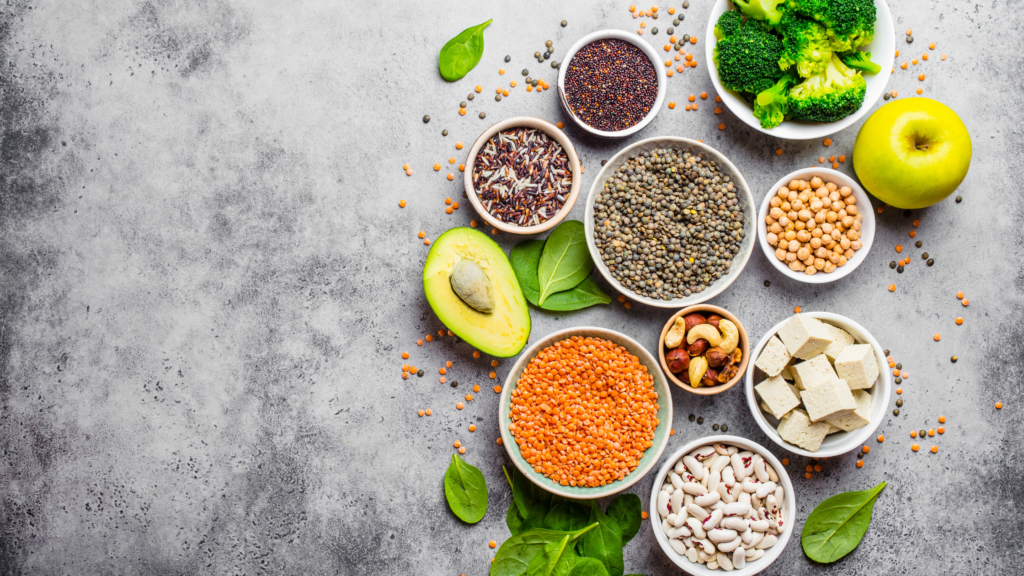
1. Calcium
During menopause, the natural decline in estrogen levels leads to a significant decrease in bone density, heightening the risk of osteoporosis—a condition that can render bones brittle and susceptible to fractures from minor falls or injuries. This is a critical concern, as maintaining bone strength becomes essential for overall health and mobility.
Calcium plays a pivotal role in this equation, acting as the cornerstone for bone health. Women are advised to aim for a daily intake of around 1,200 mg of calcium, which can be sourced from a variety of foods. To maximize calcium absorption, pairing it with vitamin D is crucial.
Food Sources: Fortified plant-based milks, leafy greens such as kale and collard greens, almonds, and tofu, provide excellent options to meet this requirement.
Incorporating these dietary strategies, along with engaging in regular weight-bearing exercises like walking, dancing, or strength training, can significantly bolster your bone strength and mitigate the risk of osteoporosis. By prioritizing calcium and holistic bone health, you can empower yourself to navigate this life stage with greater resilience, ensuring they remain active and vibrant long into their later years.
Source: John Hopkins Medicine
2. Vitamin D
Vitamin D is a powerhouse nutrient that plays a critical role in maintaining your bone health as well, particularly as you navigate the challenges of menopause. By enhancing your body’s ability to absorb calcium, vitamin D works hand in hand with this essential mineral to fortify bone density. This collaboration is vital during menopause when hormonal changes lead to increased bone fragility and a higher risk of osteoporosis.
Beyond its impressive bone-supporting benefits, vitamin D also acts as a key player in bolstering the immune system. It helps regulate the immune response, equipping the body to effectively combat infections and illnesses. This is especially important during your menopause period, as you may find your immune systems less resilient as they age.
What’s more? Vitamin D is linked to mood enhancement, with research suggesting that low levels may contribute to feelings of anxiety and depression. As hormonal fluctuations can lead to emotional ups and downs during menopause, ensuring adequate vitamin D levels can be a significant factor in achieving emotional stability and your overall well-being.
Food Sources: While sunlight exposure is a natural way to boost vitamin D levels, dietary options like fatty fish—such as salmon and mackerel, and certain mushrooms are also excellent choices. For those who struggle to get enough sun, supplements can provide a convenient solution as well.
By prioritizing vitamin D alongside calcium, you can cultivate a strong foundation for bone health, enhance your immune defenses, and support emotional balance, empowering you to embrace this transformative stage of life with vitality and confidence!
Source: Verywell Health
3. Magnesium
Magnesium is a powerhouse mineral that significantly contributes to overall health. It plays a vital role in maintaining bone density by aiding in the conversion of vitamin D into its active form, which is essential for calcium absorption. This connection is crucial for preventing osteoporosis as estrogen levels decline.
Beyond bone health, magnesium offers muscle-relaxing benefits that help alleviate tension and cramps associated with hormonal changes. It also promotes restful sleep by regulating your neurotransmitters that can be disrupted during menopause, addressing common sleep disturbances.
Additionally, magnesium supports emotional well-being by stabilizing your mood and reducing anxiety and depression, which can fluctuate during this transitional phase.
Food Sources: To boost magnesium intake, you can focus on nutrient-rich foods like leafy greens, nuts, seeds, whole grains, and dark chocolate.
Source: Healthline

4. Omega-3 Fatty Acids
Omega-3 fatty acids are essential fats that play a vital role in your health, especially during menopause. Since the body cannot produce these fatty acids, they must be obtained through diet or supplements.
One of their key benefits is supporting heart health, as declining estrogen levels during menopause can increase the risk of cardiovascular issues. Omega-3s help maintain healthy blood pressure and cholesterol levels while reducing inflammation.
Besides that, omega-3s are linked to improved brain health. They may help protect against cognitive decline, supporting mental clarity and memory. These fatty acids can also alleviate your menopause symptoms like hot flashes and mood swings, contributing to emotional balance.
Food Sources: The best sources of omega-3s include fatty fish such as salmon and mackerel, as well as plant-based options like flaxseeds, chia seeds, and walnuts.
If you don’t consume enough omega-3-rich foods, supplements like fish oil or algae oil can be beneficial. By incorporating omega-3 fatty acids into their diets, you can enhance heart health, support cognitive function, and ease menopausal symptoms, fostering overall well-being during this transformative life stage.
5. Vitamin Bs
B vitamins are essential for mood regulation and energy production. These water-soluble vitamins help with metabolism, the production of red blood cells, and maintaining a healthy nervous system.
Vitamin B12, in particular, plays a crucial role in brain health. As estrogen levels decline, you may experience fatigue and mood swings. B12 supports the synthesis of neurotransmitters that regulate mood, reducing the risk of depression and cognitive decline during this transitional phase.
B vitamins, including B6 and folate (vitamin B9), also aid in converting carbohydrates, fats, and proteins into usable energy, combating the fatigue often felt during menopause. Additionally, they contribute to the production of myelin, which protects nerve fibers and supports proper nerve function.
Food Source: Meat, fish, eggs, leafy greens, legumes, and whole grains.
By prioritizing B vitamins, you can enhance your mood, boost energy levels, and support brain health, helping you navigate menopause with resilience and vitality!
6. Vitamin E
Vitamin E is a vital fat-soluble antioxidant that plays an important role in women’s health. Its primary function is to combat oxidative stress, which can increase due to hormonal changes as estrogen levels decline. This makes adequate vitamin E intake crucial for managing common menopausal symptoms, such as hot flashes and night sweats, by helping regulate the body’s temperature control.
In addition to symptom relief, vitamin E supports skin health, addressing issues like decreased elasticity and hydration that can occur during menopause. Its antioxidant properties protect your skin from environmental damage, promoting moisture retention and overall skin vitality.
Vitamin E also contributes to heart health, an essential consideration during menopause when cardiovascular risk can rise. By preventing the oxidation of LDL cholesterol and supporting healthy blood circulation, vitamin E helps maintain cardiovascular function.
Food Sources: Nuts, seeds, vegetable oils, and green leafy vegetables into their diets.
While supplements are available, you should consult a healthcare provider before use. Prioritizing vitamin E can enhance your quality of life during menopause, fostering overall well-being and vitality.
7. Phytoestrogens
Phytoestrogens are plant-derived compounds that mimic estrogen in the body, making them particularly beneficial for women during menopause when natural estrogen levels decline. By binding to estrogen receptors, phytoestrogens can help alleviate common menopausal symptoms such as hot flashes, night sweats, and mood swings.
Food Sources: Soy products (like tofu and tempeh), flaxseeds, chickpeas, lentils, and whole grains, with soy isoflavones being especially well-researched for their health benefits.
In addition to symptom relief, phytoestrogens may support your bone health by promoting bone density, which is crucial for preventing osteoporosis as estrogen levels drop.
They also contribute to heart health, as diets rich in phytoestrogens have been linked to improved cholesterol levels and reduced risk of heart disease—important considerations for my fellow postmenopausal women :).
While phytoestrogens offer numerous benefits, it’s best to consume them from whole food sources rather than supplements to avoid potential hormonal imbalances. Overall, incorporating phytoestrogen-rich foods into your diet can help manage menopausal challenges and promote overall health during this significant life stage.
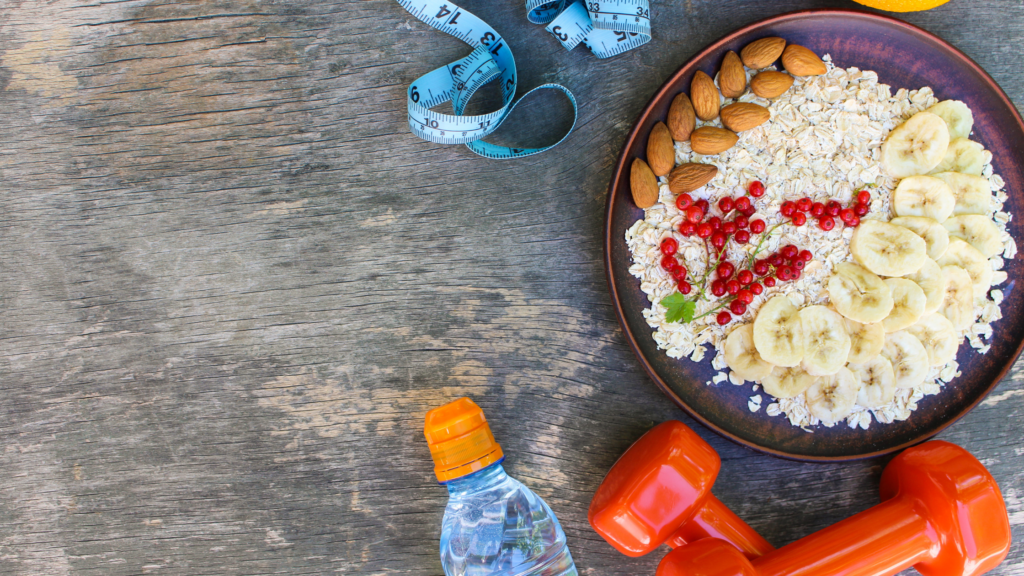
8. Fiber
Fiber is an essential nutrient, especially for women during menopause, as it supports your digestive health, weight management, and blood sugar stabilization. It includes the indigestible parts of plant foods that help maintain regular bowel movements and prevent constipation, which can become more common due to hormonal changes.
Incorporating fiber-rich foods, such as fruits, vegetables, whole grains, legumes, and nuts, can aid in weight management by promoting satiety and reducing cravings. Plus, fiber helps stabilize your blood sugar levels, minimizing energy fluctuations and mood swings.
Moreover, a high-fiber diet is linked to a lower risk of heart disease, which is particularly important post-menopause when cardiovascular risk increases. Fiber can help lower cholesterol levels and improve your overall heart health!
You should aim for about 25 grams of fiber daily, focusing on a variety of sources to enhance overall well-being during this transitional phase of life. Prioritizing fiber can effectively manage menopausal symptoms and support long-term health.
9. Protein
Protein is an essential nutrient for women, particularly during menopause, as it helps preserve muscle mass, supports bone health, and aids in weight management. With the decline in estrogen levels, you may experience muscle loss and changes in body composition, making adequate protein intake crucial.
Protein plays a key role in muscle synthesis and repair, combating age-related muscle loss (sarcopenia) and enhancing strength and mobility. It also contributes to bone health by providing the necessary building blocks for bone tissue and improving calcium absorption, which is vital for preventing osteoporosis.
Incorporating protein-rich foods into meals can enhance satiety, helping to control cravings and reduce overeating—important factors in managing weight during menopause.
Food Sources: Lean meats, poultry, fish, eggs, legumes, nuts, seeds, and plant-based options like tofu.
Nutrition experts offer nuanced guidance on protein intake for menopausal women. Recommendations range from 1.0-1.2 grams of protein per kilogram of body weight, which for a 150-pound woman equates to approximately 68-82 grams daily. However, some menopause specialists suggest an alternative approach: targeting 1 gram of protein per pound of ideal body weight.
A practical strategy is to distribute your protein intake evenly throughout the day, aiming for 20-30 grams of protein at each meal. This approach helps optimize muscle protein synthesis, supports metabolic health, and provides a steady source of nutrition during a time of significant bodily changes.
10. Antioxidants (Vitamin C, Selenium, Zinc)
Antioxidants, such as Vitamin C, selenium, and zinc, are vital for women’s health during menopause as they help combat oxidative stress and support your overall well-being.
Vitamin C is a powerful antioxidant that boosts immune function, aids collagen production for skin health, and protects against oxidative damage.
Food Sources: Citrus fruits, strawberries, bell peppers, and leafy greens.
Selenium supports thyroid function and the immune system while offering anti-inflammatory benefits. It has been linked to a reduced risk of chronic diseases.
Food Sources: Brazil nuts, seafood, eggs, and whole grains.
Zinc plays a crucial role in immune health, hormone production, and mood regulation, making it especially important during menopause.
Food Sources: Meat, shellfish, legumes, seeds, and nuts.
11. Iron
Iron plays a key role in producing hemoglobin, which transports oxygen in the blood. Adequate iron levels are vital for maintaining energy, cognitive function, and overall vitality, especially as hormonal changes can lead to increased fatigue.
During perimenopause, you may experience heavy menstrual periods, resulting in significant iron loss and raising the risk of iron deficiency anemia, characterized by symptoms like fatigue and weakness. Therefore, it’s important to consume enough iron-rich foods.
Iron exists in two forms: heme iron from animal sources (such as lean meats, poultry, and fish) and non-heme iron from plant sources (like legumes, lentils, spinach, and fortified cereals). Heme iron is more easily absorbed, while non-heme iron absorption can be enhanced by pairing it with vitamin C-rich foods, such as citrus fruits and bell peppers.
For women aged 19 to 50, the recommended dietary allowance (RDA) for iron is about 18 mg per day, while postmenopausal women need around 8 mg per day. A balanced diet that includes iron-rich foods can help maintain energy levels and prevent deficiency during menopause.
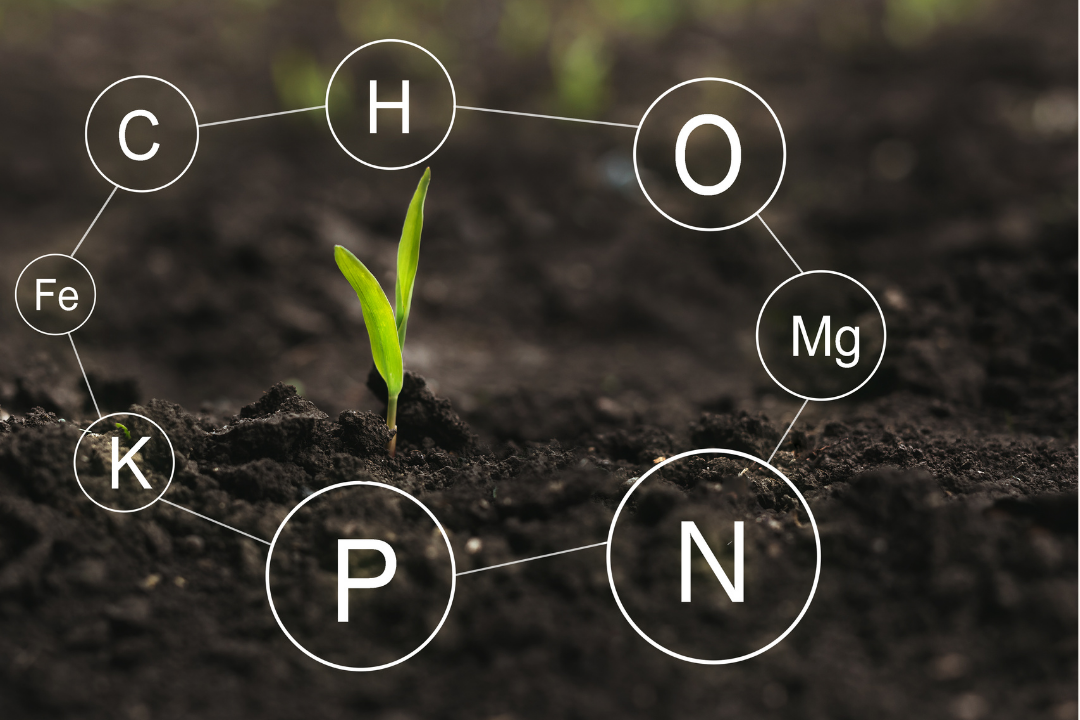
12. Potassium
Potassium is a vital mineral and electrolyte that plays a key role in numerous physiological processes in the body, particularly for women navigating the changes of menopause. This essential nutrient is critical for maintaining proper fluid balance, supporting nerve function, and facilitating muscle contractions. It also contributes to regulating blood pressure, which is increasingly important as menopause can lead to changes in cardiovascular health.
During menopause, hormonal fluctuations can affect blood pressure and increase the risk of cardiovascular issues. Adequate potassium intake helps counteract these effects by balancing the sodium levels in the body, promoting healthy blood vessel function, and supporting overall heart health. Studies have shown that higher potassium intake is associated with lower blood pressure levels, which can be beneficial for reducing the risk of hypertension, a common concern for women in this life stage.
In addition to its role in blood pressure regulation, potassium is essential for muscle function and preventing muscle cramps. As we age, we may experience increased muscle tension and cramping, particularly during exercise or physical activity. Adequate potassium levels help ensure proper muscle contractions and relaxation, reducing the likelihood of cramps and discomfort.
Potassium also plays a role in maintaining healthy bones. Some research suggests that potassium-rich foods may help improve bone density by reducing calcium loss from the body. This is particularly important for women during menopause, as decreased estrogen levels can lead to bone density loss and an increased risk of osteoporosis.
Food Sources: Fruits and vegetables, particularly bananas, sweet potatoes, spinach, avocados, tomatoes, and oranges. Legumes, and fish also contribute to potassium intake.
The recommended daily intake of potassium for adults is about 2,500 to 3,000 mg, though individual needs may vary based on factors such as activity level, overall health, and dietary patterns.
Very Important Note:
While potassium is essential, excessive intake from supplements can lead to hyperkalemia (high potassium levels), which can cause serious health issues, including heart problems.
13. Water
Last but not the least, water! Water regulates body temperature and reduce hot flashes and night sweats. It supports skin hydration, aids digestion, prevents constipation, and maintains kidney function. Staying hydrated also enhances cognitive function, reducing fatigue and irritability.
Aim for at least 8 cups (64 ounces) of water daily, along with moisture-rich foods like fruits and vegetables, Prioritizing hydration can effectively manage your menopausal symptoms and improve your overall well-being.
Explore Supplements You Can Trust!
When it comes to managing menopausal symptoms and supporting your overall health, choosing the right supplements is essential. I’ve curated a selection of trusted products specifically designed to address the needs of women in menopause.
Visit loraulrich.com/menopause-supplements for a comprehensive list of high-quality supplements I recommend for managing menopause symptoms, improving energy, and supporting hormone health.
These supplements are carefully selected for their:
- Proven effectiveness in supporting menopause wellness.
- High-quality ingredients with third-party testing for safety and purity.
- Focus on hormonal balance, bone health, and metabolic support.
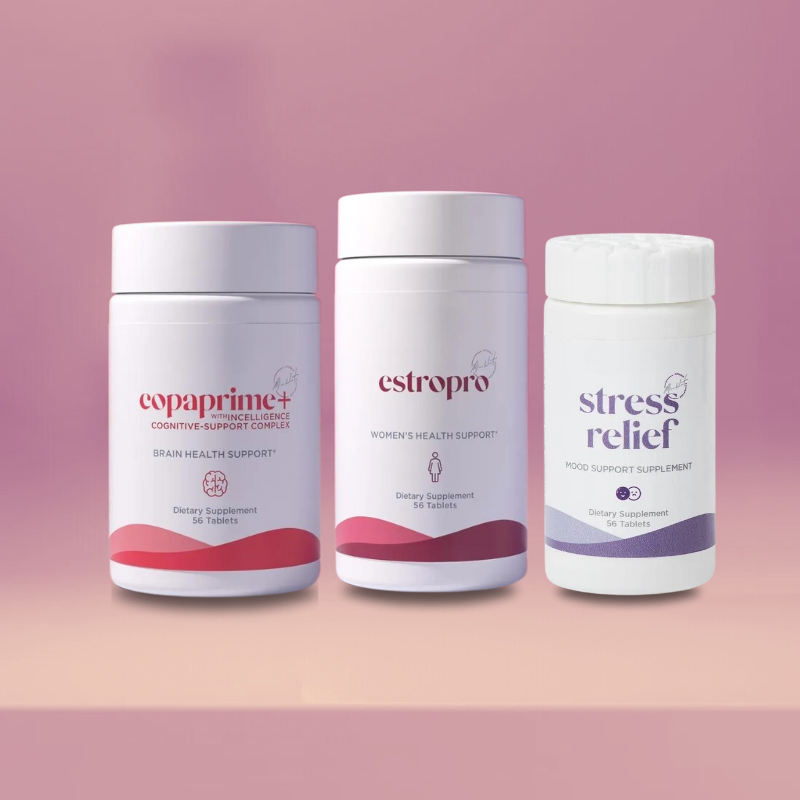
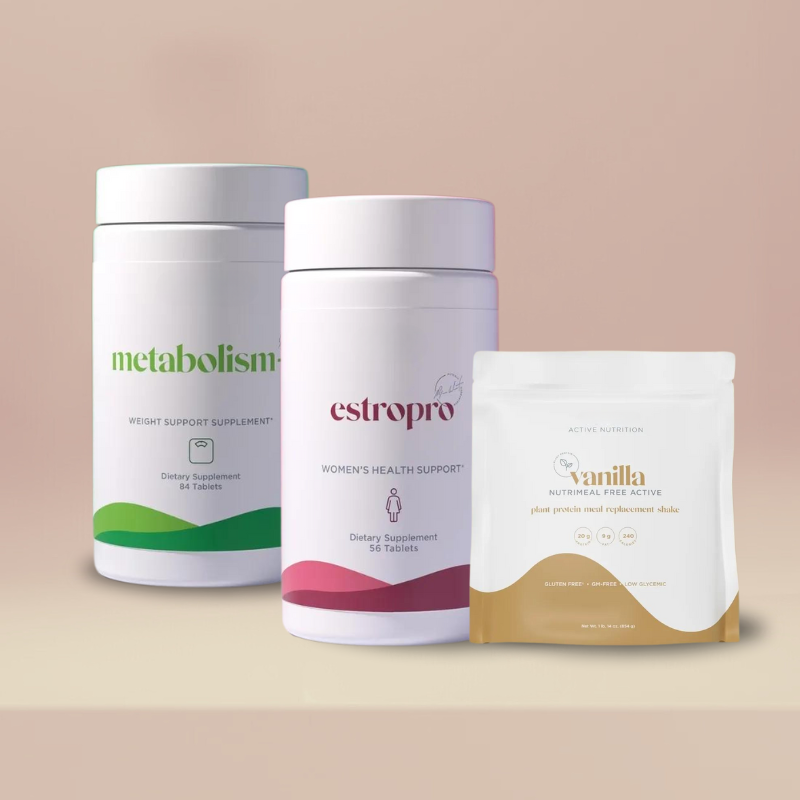
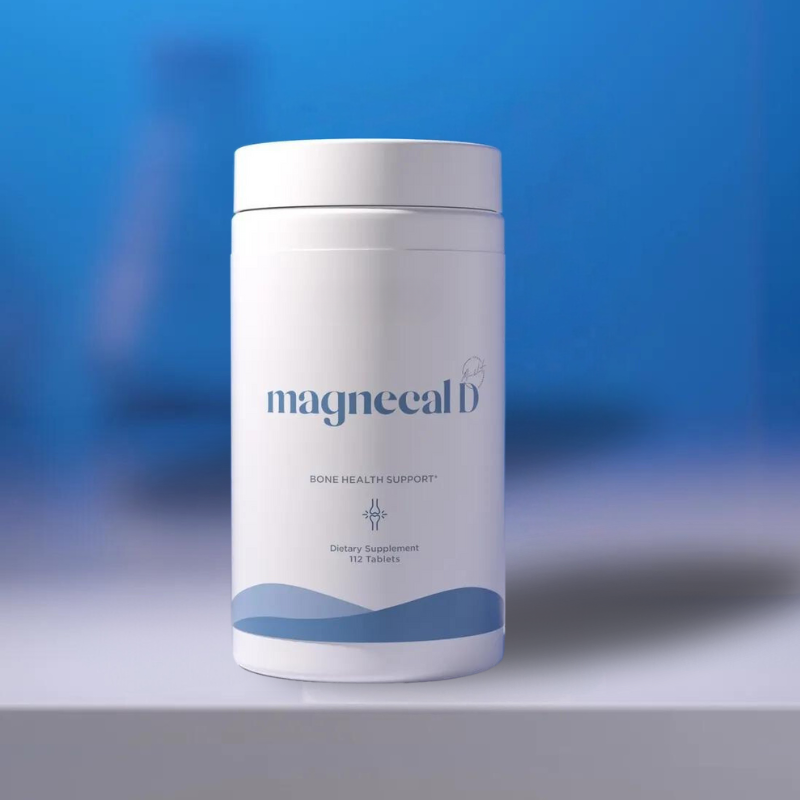
Moving Forward with Confidence
Navigating menopause can be overwhelming, and with so much information, it’s easy to feel lost. That inspired me to write these guidelines to give you a comprehensive yet manageable approach to menopause nutrition. By incorporating key nutrients and lifestyle tips, you can take it step-by-step, making choices that empower you through this new chapter.
As a Certified Holistic Nutritionist, I understand the value of a well-rounded, practical approach. For those looking to take it further, I offer personalized nutrition plans tailored to support your unique menopause journey and overall wellness goals. Schedule a call with me today and let’s start creating a plan that brings you vitality, balance, and confidence—because you deserve to thrive through menopause and beyond!
FAQs about Menopause Nutrition Guidelines
Menopause requires nutrients like calcium, vitamin D, magnesium, omega-3s, and fiber to support bone health, heart health, mood balance, and overall vitality.
A balanced diet rich in whole foods like leafy greens, nuts, fatty fish, lean proteins, and phytoestrogen-rich options like soy can ease symptoms and promote well-being.
Focus on nutrient-dense foods, stay hydrated, exercise regularly, manage stress, and prioritize sleep to support your body’s changing needs.
There’s no one-size-fits-all solution. Combine a nutritious diet, regular exercise, stress management, and medical treatments like hormone therapy if recommended by your doctor.
+ show Comments
- Hide Comments
add a comment